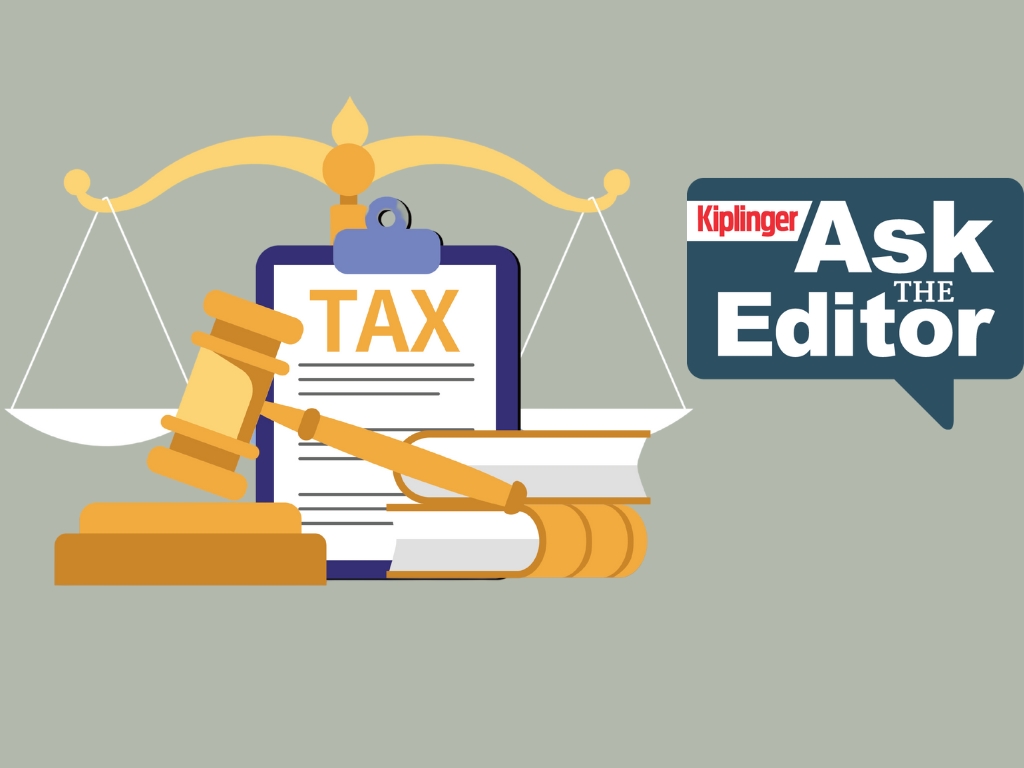Don't Let the Drama Surrounding PPP Distract You from Running Your Business
If you're so wrapped up in worry about your Paycheck Protection Program loan not being forgiven, think about the worst-case scenario. It might not be as bad as you fear.

By the time this is over, there’s one letter small business owners may never want to see again: P.
The Paycheck Protection Program, or PPP for short, was initially passed under the CARES Act as a way to help business owners keep employees on the payroll, as well as to help cover rent while the economy was shut down. But today it’s become a bureaucratic game of Clue that has left many of my own clients, and likely countless other small-business owners across the country, throwing their hands in the air and wondering if it isn’t better to simply give the money back.
Perhaps they should rename it PPPSD — Paycheck Protection Program Stress Disorder.

Sign up for Kiplinger’s Free E-Newsletters
Profit and prosper with the best of expert advice on investing, taxes, retirement, personal finance and more - straight to your e-mail.
Profit and prosper with the best of expert advice - straight to your e-mail.
Rules are constantly changing, the IRS and Congress are clashing over what’s next, and rumors and speculation about whether PPP will be extended, by how much, and for whom are running rampant. I feel dizzy just thinking about it.
But what I’m telling my clients right now is to worry less about that problematic letter and instead focus on what they know how to do best: run their business.
And I’ve been trying to focus on what I know best: staying up to date on the changes, reading through the documents, decoding the laws and stipulations, and sharing that with my clients in a way that is easy to understand and helps to enable their businesses to survive and thrive on the other side of this pandemic.
That doesn’t mean throw PPP out the window — you should consult an expert and do all you can to receive the full benefits the program has to offer. But as the first PPP loan forgiveness applications will soon be submitted, it’s become such a distraction that some small-business owners I know have lost sight of critical business decisions that could mean the difference between keeping the doors open or not.
And for some sectors, there is expected to not only be a full and fast recovery, but immense opportunity and growth. For those in the restaurant and travel spaces, there may be a slower climb back that requires additional aid, but for other industries it’s critical that business owners don’t miss out on the potential opportunities while they’re busy just trying to keep track of regulatory changes.
Imagine the worst-case scenario: Your PPP loan isn’t forgiven. Even in that case, that means you got a loan at a remarkably low interest rate of 1%. While I understand the reluctance to take on more debt in the current economic climate, I also see that there’s an end in sight, and the opportunity to get a loan at that rate doesn’t come along very often anywhere in the history of American lending.
With the Senate recently voting to extend the amount of time businesses have to spend PPP loans through the end of the year, as well as adjusting down the amount of PPP funds that need to be spent on payroll to 60%, this should also help to ease your PPPSD.
When states first started enacting stay-at-home orders, you probably did what most small-business owners do: You planned. You thought about what your business would need to do in order to survive, or how you could pivot, or what the landscape would look like not just two months down the line, but two years.
Yes, you probably made a plan. And now I’m hearing from clients who seem to have forgotten those plans.
This is not the time to discard all the hard work you’ve done to make it to this point just because PPP is a pain in the neck. Stick to what you know how to do best, talk to your advisers, and ensure you’re able to survive for the long haul.
But I won’t begrudge you if you experience a little shiver every time you see a certain letter.
Profit and prosper with the best of Kiplinger's advice on investing, taxes, retirement, personal finance and much more. Delivered daily. Enter your email in the box and click Sign Me Up.

Bruce Willey has been working with small to midsize businesses across the country for more than a decade, helping them navigate business and tax law in a variety of situations. His services include assisting with business start-ups, operations, growth, asset protection, exit planning and estate planning.
-
 Ask the Editor — Tax Questions on Inherited IRAs
Ask the Editor — Tax Questions on Inherited IRAsAsk the Editor In this week's Ask the Editor Q&A, we answer tax questions from readers on the rules on inheriting IRAs.
-
 I Asked Experts When It's Worth Splurging on Beauty and Skincare — and When You Can Save
I Asked Experts When It's Worth Splurging on Beauty and Skincare — and When You Can SaveSmart Shopping Experts agree that while you don't have to spend three figures on your products, some higher-priced items have value.
-
 Retiring Early? This Strategy Cuts Your Income Tax to Zero
Retiring Early? This Strategy Cuts Your Income Tax to ZeroWhen retiring early, married couples can use this little-known (and legitimate) strategy to take a six-figure income every year — tax-free.
-
 Ditch the Golf Shoes: Your Retirement Needs a Side Gig
Ditch the Golf Shoes: Your Retirement Needs a Side GigA side gig in retirement can help combat boredom, loneliness and the threat of inflation eroding your savings. And the earlier you start planning, the better.
-
 Roth IRA Conversions in the Summer? Why Now May Be the Sweet Spot
Roth IRA Conversions in the Summer? Why Now May Be the Sweet SpotConverting now would enable you to spread a possible tax hit over more than one payment while reducing future taxes.
-
 A Financial Expert's Three Steps to Becoming Debt-Free (Even in This Economy)
A Financial Expert's Three Steps to Becoming Debt-Free (Even in This Economy)If debt has you spiraling, now is the time to take a few common-sense steps to help knock it down and get it under control.
-
 I'm an Insurance Expert: This Is How Your Insurance Protects You While You're on Vacation
I'm an Insurance Expert: This Is How Your Insurance Protects You While You're on VacationHere are three key things to consider about your insurance (auto, property and health) when traveling within the U.S., including coverage for rental cars, personal belongings and medical emergencies.
-
 Investing Professionals Agree: Discipline Beats Drama Right Now
Investing Professionals Agree: Discipline Beats Drama Right NowBig portfolio adjustments can do more harm than good. Financial experts suggest making thoughtful, strategic moves that fit your long-term goals.
-
 'Doing Something' Because of Volatility Can Hurt You: Portfolio Manager Recommends Doing This Instead
'Doing Something' Because of Volatility Can Hurt You: Portfolio Manager Recommends Doing This InsteadYes, it's hard, but if you tune out the siren song of high-flying sectors, resist acting on impulse and focus on your goals, you and your portfolio could be much better off.
-
 Social Security's First Beneficiary Lived to Be 100: Will You?
Social Security's First Beneficiary Lived to Be 100: Will You?Ida May Fuller, Social Security's first beneficiary, retired in 1939 and died in 1975. Today, we should all be planning for a retirement that's as long as Ida's.